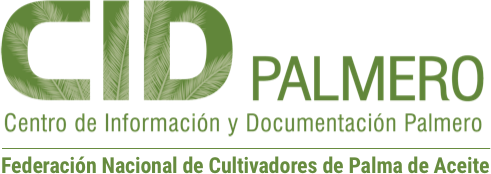| dc.creator | Sinimbu, Sebastiao | |
| dc.date | 2010-01-01 | |
| dc.date.accessioned | 2020-07-25T11:20:13Z | |
| dc.date.available | 2020-07-25T11:20:13Z | |
| dc.identifier | https://publicaciones.fedepalma.org/index.php/palmas/article/view/1547 | |
| dc.identifier.uri | http://repositorio.fedepalma.org/handle/123456789/140174 | |
| dc.description | Considered today as one of the most important competitiveness factors, transportation is one of the main components of the logistics costs of an agro-industrial operation. In the case of Brazil, it basically consists of a road network and a limited river and railroad transportation service. Agropalma has a 32,800-hectare oil palm plantation in production, and uses land and river transportation for fruit and oil, respectively. The Company has its own transportation system consisting of 1,600 km of internal roads, 130 tractors (40 CV), 42 trucks, 2 river ports and 2 barges. Approximately 3000 hectares are harvested every day, with an average production output of 2,400 tons/day. Fruits are transported to the oil mill within 24 hours after harvesting. In order to be able to meet this time frame, Agropalma developed a logistics system that includes fruit transportation from inside the plantation to the mill gate. Additionally, the system, depending on the industrial availability, provides for temporary storage of fruits. This logistics is one of the main factors responsible for the quality standard of Agropalma's crude oil, which has an acidity of less than 2.5%. Crude oil stored in the municipality of Thailand is transported by river barge to the refining plant in Belem, the capital of the State. Each barge transports 1,100 tons of crude oil. River barge transportation of crude oil has the following advantages: lower costs, lower risks and better quality control. Agropalma believes that this logistics system is a key differentiating factor in ensuring the sustainability and competitiveness of the | en-US |
| dc.description | Considerado actualmente como uno de los factores más importantes para la competitividad, el transporte es uno de los principales componentes del costo logístico de una operación agroindustrial. En el caso de Brasil, está definido básicamente por una red de carreteras y cuenta también con un servicio limitado de transporte fluvial y ferroviario. En Agropalma existen 32.800 hectáreas de plantación de palma en producción y la Compañía utiliza vías terrestres y fluviales para el transporte del fruto y el aceite, respectivamente. Con este fin, la empresa cuenta con un sistema de transporte creado por la empresa misma, el cual consta de 1.600 km de vías internas, 130 tractores (40 CV), 42 camiones, 2 puertos fluviales y 2 balsas. Diariamente se recolecta el producto de cerca de tres (3) mil hectáreas, con una producción media resultante de 2.400 toneladas/día. Estos frutos se transportan a las plantas para su procesamiento en un plazo no mayor de 24 horas después de la cosecha. Con objeto de estar en posibilidad de cumplir con ese plazo, Agropalma desarrolló un sistema de logística que contempla, desde la retirada de los frutos del interior de las plantaciones, hasta la entrega de los mismos en las plantas. Del mismo modo, de acuerdo con la disponibilidad industrial, el sistema permite almacenar los frutos en patios de almacenamiento temporal. Esta logística es uno de los principales factores responsables de la norma de calidad del aceite en bruto de Agropalma, el cual posee una acidez inferior a 2,5%17 | es-ES |
| dc.format | application/pdf | |
| dc.language | spa | |
| dc.publisher | Fedepalma | es-ES |
| dc.relation | https://publicaciones.fedepalma.org/index.php/palmas/article/view/1547/1547 | |
| dc.rights | Derechos de autor 2017 Revista Palmas | es-ES |
| dc.rights | https://creativecommons.org/licenses/by-nc-nd/4.0 | es-ES |
| dc.source | Revista Palmas; Vol. 31 Núm. especial, (2010); 9-18 | es-ES |
| dc.source | 0121-2923 | |
| dc.subject | palma de aceite | es-ES |
| dc.subject | elaeis guineensis | es-ES |
| dc.subject | productividad | es-ES |
| dc.subject | transporte | es-ES |
| dc.subject | recolección de frutos | es-ES |
| dc.subject | carreteras | es-ES |
| dc.subject | embarque | es-ES |
| dc.title | Technology and logistics for palm oil and fruit transportation developed by the Agropalma Group | en-US |
| dc.title | Tecnología y logística del transporte de frutos y aceite de palma : la experiencia del grupo Agropalma | es-ES |
| dc.type | info:eu-repo/semantics/article | |
| dc.type | info:eu-repo/semantics/publishedVersion | |


